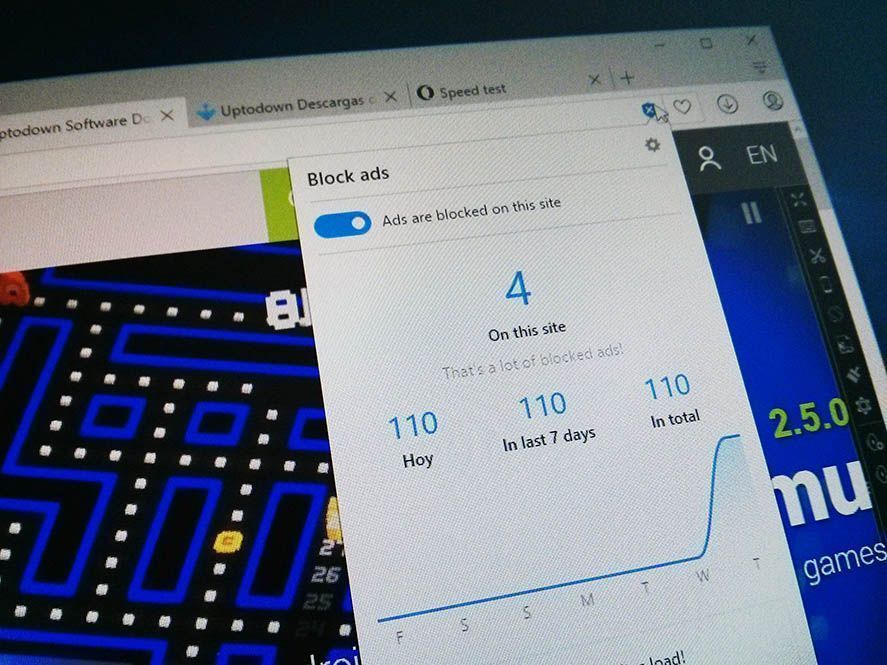There are still a lot of turns that adblocking can take. Opera just put into place a controversial new measure by adding a function in its latest beta version for its desktop clients: Opera Browser 37 includes its own already integrated adblocker. It also advises you to activate this adblocker in order to substantially increase browsing speed, which is fair enough. The question is: can the internet really sustain itself without advertising?

The latest Opera update from dev channel (v37.0.2163) integrates an advertising blocker that is deactivated by default, but you easily activate it on the setting bar by selecting Block Ads. After activation a new shield icon appears on your web browser menu bar that even shows you a benchmarking graph that tells you how much faster your machine is going by not viewing those ads. It also lets you know just how many ads are being blocked on the page that’s open, as well as a history of how many ads have been blocked in total.

This is a surprisingly aggressive measure when you consider how large Opera really is. Their proposal is so emphasized that it even offers to benchmark any URL and compare the amount of time it takes to load the page with and without ads.
In Uptodown’s case, the improvement makes loading 50% faster making our desktop version page load with ads in 2.24 seconds and without ads in just 1.10 seconds. They aren’t reinventing the wheel with this new feature. Everyone knows that one of the biggest setbacks in speeding up your web browsing experience is waiting for ads to load.

In most cases when using Opera’s adblocking feature, webpage format doesn’t get modified when banner space is eliminated so an empty area is left over after the ads have been blocked. But, there is a risk that websites could end up looking slightly off balance. After browsing for a while with the adblocker feature activated, it is actually pretty nice because it blocks banners and those all too common pixelated images that result from personalized ads. It’s easy to see the pros in favor of integrated adblocking features. The problem really only arises when you think about the longterm impact on businesses.
If you stop and think about the business models for most of the websites that use advertising to generate income you begin to realize that adblocking is problematic. It is also more than a little fishy that Opera has a default whitelist with ten or so webpages that are immune to being blocked, that being said you can modify this list as you please. But really, who chooses which pages deserve to be on this list?

If you take a moment to read through the whole list and browse those sites you start to see a trend of increasingly intrusive advertising from the chosen whitelisted websites.
On the other hand, it isn’t worth it to get into too much detail given the fact that this debate has been around since the dawn of the internet and has recently been reheated by a huge number of voices. Let’s just get back to basics. Uptodown’s business model survives 100% off of advertising. If adblocking becomes widespread and we can’t get on that whitelist, our project just wouldn’t be sustainable so we would end up having to close. But truth be told, we really aren’t the only ones out there. Google also receives a whopping 97% of its revenue through advertising. Sure, a perfect version of the internet would be completely decentralized and independent, but remember there is a fine line dividing perfection from dystopia.












[…] talked loads here on the blog about all the cool stuff on the Opera browser – in both its desktop and smartphone versions – including novelties like an integrated […]